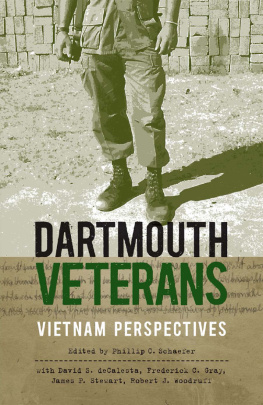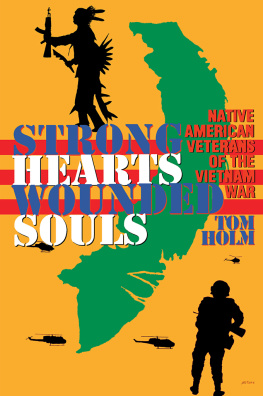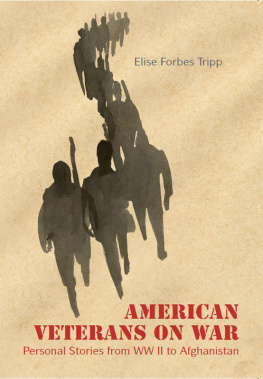First published 1993 by Transaction Publishers
Published 2017 by Routledge
2 Park Square, Milton Park, Abingdon, Oxon OX14 4RN
711 Third Avenue, New York, NY 10017, USA
Routledge is an imprint of the Taylor & Francis Group, an informa business
Copyright 1993 Taylor & Francis.
All rights reserved. No part of this book may be reprinted or reproduced or utilised in any form or by any electronic, mechanical, or other means, now known or hereafter invented, including photocopying and recording, or in any information storage or retrieval system, without permission in writing from the publishers.
Notice:
Product or corporate names may be trademarks or registered trademarks, and are used only for identification and explanation without intent to infringe.
Library of Congress Catalog Number: 2012021817
Library of Congress Cataloging-in-Publication Data
Scott, Wilbur J., 1946
The politics of readjustment : Vietnam veterans since the war / Wilbur J. Scott.
p. cm.
1. Vietnam War, 1961-1975--Veterans--United States. 2. Vietnam War, 1961-1975--Psychological aspects. 3. Veterans--Mental health--United States. I. Title.
DS559.72.S36 2012
362.860973
2012021817
ISBN 13: 978-0-202-30406-9 (pbk)
When Wilbur Scott phoned and asked me to write the foreword for this book, I agreed to do so immediately. In addition to being a student of military organizations, I am also a veteran of Vietnam. I was anxious to read Scotts analysis of adjustments to civilian life by veterans of this war, the conflicts and movements that they were involved in, and how they simply searched, and continue to search, for parts of themselves that were left in a faraway land. When I read the manuscript, it fulfilled all of my expectations of what such an analysis of Vietnam veterans should involve.
There have been many treatments of Vietnam veterans in the academic and popular literature. But none of these works bring together, under one cover, the number of issues treated in this book. Even more impressive, the major portions of this book are written with the natural flow of a novel that should make it very accessible to the general population. At the end of the book, Scott brings this novelistic flow together into a theoretical framework so that scholars, particularly of military sociology and veterans studies, can evaluate the books contribution to their fields. As a result, Wilbur Scott has produced a work that is an outstanding treatment of the Vietnam veteran.
When Vietnam veterans are compared to veterans of other wars, perhaps the only things that they have in common are that they wore the same uniform, experienced the same basic training, fought in a faraway land, and experienced hardships and problems. The Vietnam veterans experience has been different, when seen in its totality, in that they were not welcomed home with open arms. When they were welcomed, it was a lukewarm kind of acceptance. I remember that when I returned from Vietnam, the first thing that we did was to shed the uniform and get into civilian clothes. This is in stark contrast to veterans of World War I, World War II, and Korea, who wore their uniforms to their hometowns, and were received with welcome arms. In a very real sense, this book is about the politics that Vietnam veterans developed in order to get the country to come to grips with the Vietnam war itself and the many problems associated with the war.
As the book begins, the reader is given a close-up and personal look at the efforts of a group of veterans who concentrated on ending the war in Vietnam. Scott takes us through the rise and decline of the organization, Vietnam Veterans Against the War (VVAW), the lives of its founders, and their approach to important questions concerning our involvement in Vietnam. In an analysis reminiscent of Samuel Stouffers classic, The American Soldier, subsequent chapters treat the reader to the views of health professionals on the effects of combat vis-a-vis the Vietnam experience. Scotts analysis of the controversy over readjustment programs for the Vietnam veteran is wrapped around significant events of the war, such those that took place at My Lai. His stories also integrate the practice and politics of psychiatry with the reality of post-combat grief experienced by the veterans themselves.
Perhaps no other issue has come to mark the politics of readjustment by Vietnam veterans as has Agent Orange. It was this issue that made all veterans, whether they were active in the veterans movement or not, identify with problems associated with the Vietnam war. The symptoms of exposure to the herbicide could appear years after service, and a fear of its effects lingers still in the minds of veterans of this war. In informal settings veterans might comment uneasily, My children are all right, so I guess I was not affected by Agent Orange; and, when a Vietnam veteran dies at a young age of cancer, people often offer by way of explanation, Well, you know that he was a Vietnam veteran. Scott does a masterful job of showing how the rise of the Agent Orange issue is correlated with the lawsuit filed by Agent Orange Victims International (AOVI) and the rise of the organization, Vietnam Veterans of America (VVA). His stories show the politics that marked Veterans Administration policy and the major scientific studies concerning Agent Orange, and examines efforts by government agencies, the military, and veterans organizations to frame and direct the course of the controversy.
The most moving story in this book concerns the building and dedication of the National Vietnam Veterans Memorial. Although the war ended in 1973, it was not until 1982 that Vietnam veterans were recognized by their country. Like all issues associated with Vietnam, the road was rocky and fraught with controversy. The project was conceived and directed by a small group of Vietnam veterans, and the seven million dollars to construct the Memorial was raised completely through private donations. During the celebration thousands of veterans, some wearing remnants of their old uniforms and some riding in wheel chairs or walking with crutches, marched down Constitution Avenue in Washington, D.C., to mark their homecoming.
For students of military organizations, Scott weaves observations about the impact of traditional military policy on the Vietnam veteran into his narrative. For example, military sociologists have for years looked at the importance of keeping units together so that the demoralizing effects of combat can be neutralized. In Vietnam, the twelve-month rotation system weakened and then destroyed cohesion in combat units. Scott examines how this policy affected veterans as they returned to civilian society.
Also for students of the military, many of the issues discussed in Stouffers The American Soldier, especially the chapter, The Soldier Becomes a Veteran, can be found in Scotts work. Of course Scotts work is not full of contingency tables showing relationships between selected variables, as was the case with Stouffers book. But within Scotts many stories one finds a sense of what veterans issues are all about and what veterans organizations and concerned citizens should do for soldiers as they re-enter civilian life. These concerns were predominant in Stouffers work, and form the core of Scotts contribution to the field of military sociology and veterans studies.










